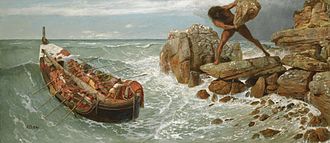We are now in the the second of our six month leadership development programme. This month we covered the theme of leadership. Our guest speaker, Professor Monika Kostera Professor Monika Kostera, delivered a fascinating lecture on the challenges of leadership in a changing world.
Monika holds a number of visiting professorships and is an accomplished writer and speaker. Her research themes include imagination and organizing, disalienation of work, organizational ethnography and organizational archetypes.
Monika opened her lecture by describing the transformation of society from the “solid modernity” of the 1960s to 1980s. In those optimistic years, we believed that technology would improve lives to the point where we didn’t have to work, that science would answer all the questions that religion could not, and that equality for all was on the horizon. Remember the malleable, friendly “maintenance drones” in the 1972 film, Silent Running? They did all the hard work, so that humans could spend their time doing useful work.

However, the last twenty years have been characterised by “liquid modernity”, namely the growing realisation that technology created as many problems as it solved, a loss of religious faith, and an increase in inequalities. Zygmunt Bauman (1925-2017) is the brilliant sociologist and philosopher who introduced the concept of liquid modernity . Monika explained that liquid modernity has caused our current state of psychological instability. Whereas before we thought that we were walking to a future utopia, we are now increasingly unable to predict the future. Just look at Brexit, Trump, and the recent UK general election for examples of how difficult it is to predict what will happen next.
Furthermore, the refusal to use history as a template for learning from our mistakes leaders to discontinuity. Monika discussed constantly changing fashions in the field of business studies. For example, the balanced scorecard is still an excellent tool for strategic leadership, yet it has fallen out of fashion.
Finally, the loss of religious faith in many societies has created a hyper-rationality, whereby linear thinking and logic are prioritised over mystery and uncertainty.
So what does this mean for leadership in a liquid modern world?
Monika argued that leadership requires storytelling and imagination. Telling a compelling, uplifting story about their organisation helps to reassure insecure staff. Given the high failure rate of many businesses, staff may not otherwise believe their organisation has a concrete future. Leaders can exercise their imagination collaboratively, to build and strengthen teams. Creating a shared story for an organisation can be done together with staff. The ability to think creatively also helps leaders to avoid simple solutions to complex problems.
This is where archetypes come in: the leader as adventurer, for example: Odysseus who bravely led his men through various dangers in a long and epic journey

Further reading was suggested: Gareth Morgan’s Images of Organization“Images of Organization” as a way to understand how archetypes and metaphors can be used by leaders to describe their organisations.
Monika’s most recent book, Management in a Liquid Modern World, is a more detailed examination of the themes of how managers can survive in a society where alienation and confusion are rife.
Our participants were stimulated by Monika’s lecture, particularly by her wider perspective and sociological theory. One attendee said “This is the benefit of coming to a leadership course run by a University. Where else could we hear someone like this speak?”
Monika used one of Albert Einstein’s quotes to emphasise the importance of imagination in leadership: “Imagination is more important than knowledge. Knowledge is limited. Imagination encircles the world.”


Why would you want to avoid a simple solution to a complex problem?
I think a more interesting question here is, what is the purpose of leadership and does this purpose change in this liquid modem world?
LikeLike